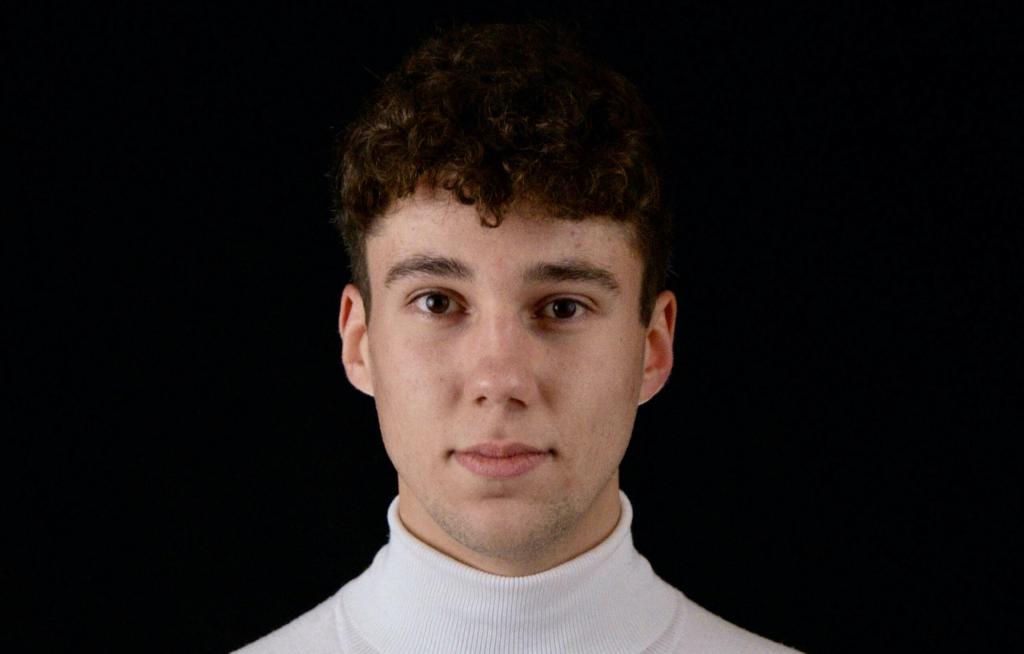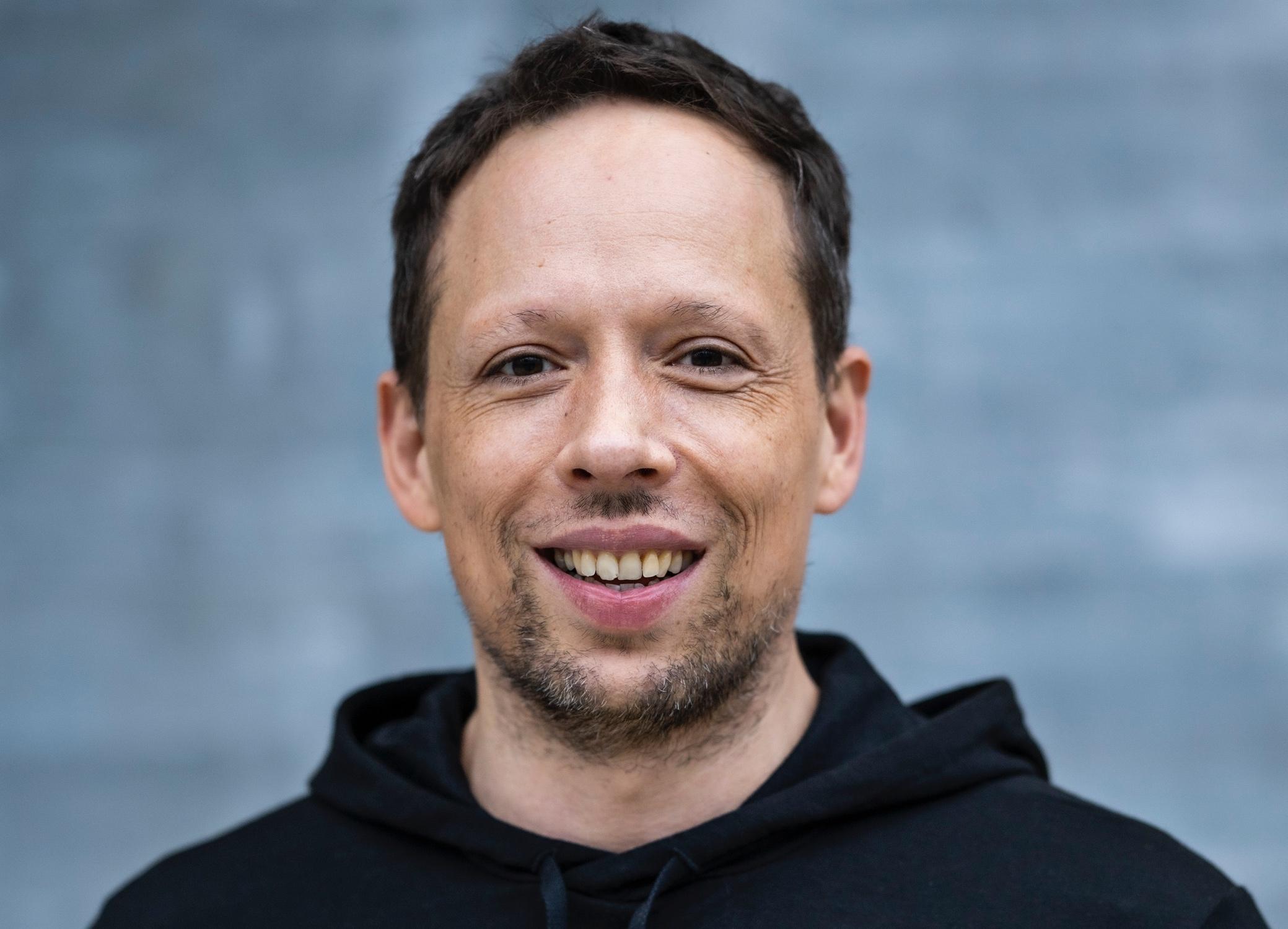"It must become easier for people under the age of 18 to give reasons"

Eike Czada is a student and serial founder. In this interview, he talks about the hurdles of starting a business under the age of 18, entrepreneurship at school and his plans for the future.
An appointment with Eike Czada is only available in the afternoon. Like many founders, he has a lot to do. But there's another reason why it's usually only in the afternoon: Eike Czada is 18 years old, still a pupil and attends the upper school at a grammar school. He spends most mornings and afternoons studying subjects such as German, mathematics and sport. In the evenings, he sets up his business, entirely at his own expense.
Mr. Czada, you founded your first company at the age of 16. How do you come up with something like that?
I tried my hand at it very early on, at the age of 12 or 13, read a lot of books and also taught myself a bit of programming. I came across the podcast "Kein Limit" by the founders of Simpleclub, in which they explicitly dealt with the topic of entrepreneurship in one episode and explained their involvement in "Start-up Teens". I then watched it.
Start-up Teens aims to give young people an understanding of entrepreneurship and start-ups and help them to implement ideas. What ideas did you have?
I always had an idea that I hadn't implemented. I wanted to build an app that would connect sports partners or sports groups that didn't know each other yet. I then asked a friend if he would like to do it for me. I had taught myself a bit of programming by then, but in hindsight I have to say: I couldn't really do anything. We had no Macbooks, no time resources. But after nine months, we had a code structure and a business plan.
It sounds like you scaled up.
On the contrary: we discontinued the app. We had previously continued to expand it and tested it far too little. We always focused on what we thought was good and not on what others thought was good. We then realized that the entire structure wasn't working and discontinued the project.
How does it feel to bury your first company at the age of 15?
It's not a nice feeling, of course. But I realized in the project what I liked, what I enjoyed. In particular, selling and distribution, connecting with people. That motivated me to set up my second company: Czada Marketing. A marketing and consulting agency for small and medium-sized companies, which focused in particular on young target groups.
It took me two months to win my first customer and four months to earn money for the first time.
Eike Czada, founder of Czada Marketing
How do you win customers as a 16-year-old?
Only with difficulty. I had to offer some companies to work pro bono, others just smiled at me. After all, I'm still a schoolboy. It took me two months to win my first customer and four months to earn money for the first time. But then it became lucrative.
Czada Marketing was an independent company. How does it work if you are not yet 18 and therefore of legal age?
Unfortunately, it's different in every region of Germany, which makes it difficult. In my case in Darmstadt, I needed an official decision from the family court that I was fit for business. This requires school reports, statements from teachers, signatures from parents and a business plan. Others also had to have complete financial and time schedules. That took me several weeks at the time. A month and a half later, I had the decision, went to the trade office and was allowed to set up - and theoretically also hire employees or rent an office.
That does indeed sound very time-consuming.
I was lucky that the authorities in Darmstadt helped me a lot with everything; many others my age need eight or twelve months to get such a decision. It either gets stuck at the authorities or there are numerous meetings with the parents. The authorities want to clarify whether it is really wise for someone who is not yet 18 years old to start a business. Sometimes these meetings go on for months, but they don't achieve anything.
Why do you think that?
If someone aged 16 makes the effort to come up with a business idea and then spends weeks drawing up a business plan, as well as managing their time between school and business, then they are ready. Such discussions don't stop young people, they only hinder them. This needs to be simplified in Germany so that more young people dare to start a business at an early age.
There's no need for lessons on how to start a business, because teachers are teachers - they don't even know how to do it.
Eike Czada, founder of Twentyone Studios
Would you have liked more support from the school?
The school gives me a few hours off for important business appointments, I expect that and it helps me a lot. But I would like the school to raise awareness of the topic of entrepreneurship more. For example, in PoWi lessons(politics and economics lessons, editor's note) we learn a lot about other areas and studying, which is great, but we haven't talked about entrepreneurship once. I find that a bit sad. There's no need for lessons on founding a company, because teachers are teachers - they don't know how to do it. But I think it would be good to raise awareness of entrepreneurship.
And what do your classmates say when you are excused for an outside appointment?
They now think it's really cool and are happy for me too. I spend a lot of time in the sixth form with people who want to achieve something in their careers and I'm also an inspiration for them, which is often reflected back to me. However, that has changed, because at the beginning there was a lot of ridicule and malice. But when things started to work out and I started earning money, such comments became quieter and no longer exist today.
You will soon be deregistering Czada Marketing and have founded Twentyone Studios with your business partner Jan Michalczonek instead. There you are bundling a digitalization provider as well as an area for collaboration with other start-ups. How do you reconcile this with school?
I'm at school every day and work when I get home, usually until 10 pm. Once a week, I also plan to do something with friends, usually on Friday or Saturday evenings. Otherwise, my co-founders and I have outsourced most of the work to freelancers in the background. This means that I am primarily responsible for customer contact and sales and, of course, bear the responsibility. That's quite a workload, but I manage it well alongside school.
You are currently bootstrapped, so you pay for everything out of your own pocket. When will the investors come on board?
That is definitely one of our long-term goals. But it's not worth it at the moment because none of our current products can really be scaled up quickly. We are more of a middle ground between an agency and a start-up. "But if we develop a completely new and innovative product that also needs to be established in a specific market, then I can imagine raising capital from VCs."
Thank you for the interview.
Personal details: Eike Czada is a serial founder, has already founded a marketing agency as a student and is now aiming to develop new products with the character of a world first. In the long term, he can also imagine receiving investment from a VC.

Newsletter
Startups, stories and stats from the German startup ecosystem straight to your inbox. Subscribe with 2 clicks. Noice.
LinkedIn ConnectFYI: English edition available
Hello my friend, have you been stranded on the German edition of Startbase? At least your browser tells us, that you do not speak German - so maybe you would like to switch to the English edition instead?
FYI: Deutsche Edition verfügbar
Hallo mein Freund, du befindest dich auf der Englischen Edition der Startbase und laut deinem Browser sprichst du eigentlich auch Deutsch. Magst du die Sprache wechseln?












